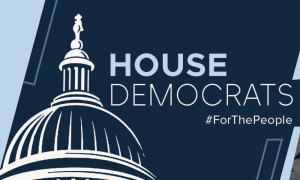Five House Democrats continue to fight for relief on the $10,000 limit on SALT, the federal deduction for state and local taxes.
Rep. Mikie Sherrill (D-NJ) sent a letter to leaders of the House Appropriations Subcommittee on Financial Services and General Government – co-signed by Representatives Josh Gottheimer (D-NJ), Tom Malinowski (D-NJ), Katie Porter (D-CA), and Tom Suozzi (D-NY) – requesting a provision be added to the fiscal 2023 appropriations bill that would deny the IRS the funds it needs to block state-level SALT cap workarounds.
Because residents can’t deduct more than $10,000 in state and local taxes on their federal returns, the $10,000 SALT limit has been a particular pain point for high-tax states like New York, New Jersey, and California. The limit was enacted by former President Donald Trump’s tax overhaul.
In his letter, Sherrill specifically mentions legislation that has been passed in New York and New Jersey which allows the creation of charitable funds by local jurisdictions that would offer property tax credits to contributing homeowners. Taxpayers who itemized deductions would have been allowed to claim a charitable write-off for their donations.
However, in 2019 the IRS and the Department of the Treasury forbid this workaround, claiming that receiving a SALT credit in return for charitable contributions would essentially be a “quid pro quo.”
Rep. Gottheimer, who is Co-Chair of the SALT Caucus, disagrees: “Congress didn’t give the IRS permission to interpret the tax law as they see fit, which they’ve done by dismantling the charitable tax deduction. We must do everything we can, including restoring the SALT deduction, to help cut taxes and make life more affordable for families and small businesses.”
In April, the Supreme Court dismissed a challenge from four states, including New York, to overturn the legislation, dealing another blow to the push for SALT reform.
The SALT cap was a big issue in President Biden’s Build Back Better negotiations. In November, as part of their spending package, the House of Representatives passed an $80,000 SALT cap that would run through 2030. However, as he so often does, Senator Joe Manchin (D-WV) blocked the plan in the Senate.
Opponents of SALT relief have long argued that raising the cap would largely benefit wealthy households. The workarounds in some states are currently only available to “pass-through businesses,” the profits of which flow to the owners’ individual tax returns.
According to a Tax Policy Center report, if the SALT cap were repealed altogether, the top 20% of taxpayers could see over 96% of the relief, which would affect only 9% of American households.






















